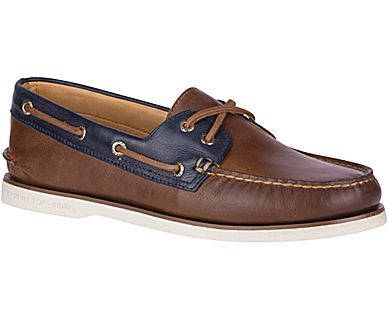Detectives wear a lot of different things on the job. They can wear suits, or they can wear jeans and a t-shirt. Some detectives like to wear ties, while others prefer wearing hoodies.
There are also some other things that detectives might wear on the job. They may wear lots of badges on their clothing or in their pockets, which show how long they’ve been working as a detective and what kinds of cases they’ve worked on before.
In addition to this, detectives might also carry items like notebooks or pens with them at all times so they can write down important information about the case they’re working on at the time
Right here on Buy and slay, you are privy to a litany of relevant information on what is the work of a detective, do police detectives work on weekends, do police detectives wear uniforms what do detectives need and so much more. Take out time to visit our catalog for more information on similar topics.
What is the work of a detective?

A Detective is a professional who is responsible for seeking out information and researching the circumstances of situations to solve crimes or uncover details about civil matters.
Use this Detective job description to advertise your vacancies and find qualified candidates. Feel free to modify responsibilities and requirements based on your needs.
Detective responsibilities include:
- Conducting detailed investigations of criminal activities and other violations of local, federal or state law
- Collecting, analyzing and preserving evidence
- Directing crime scene investigators and other law enforcement personnel at crime scenes
What makes a good Detective?

A good Detective must be hardworking and trustworthy to ensure all evidence is handled properly throughout the case proceedings. They must also have good communication skills since they work with a team of investigators and share important information to ensure their case is built properly.
Who does a Detective work with?
A Detective will work with many professionals throughout the justice system like Police Officers as they gather and process evidence at crime scenes.
Methods of a Detective
There are many methods and strategies that detectives may employ as they seek to gather evidence and build criminal cases.
- Interrogating those who are suspected of criminal activity
- Interviewing witnesses to criminal acts, including victims
- Surveilling those who are suspected of criminal activity
- Reviewing records, videos or other evidence that might reflect criminal activity
- Conducting and/or supervising a crime-scene search
Detective Specialties

There are a number of specialties in the detective profession.
- Homicide detectives: These law enforcement professionals investigate deaths, confirming when and if there is foul play involved and tracking down the killer.
- Cybercrime detectives: Detectives who work in cybercrime will track down hackers and other online criminals.
- Narcotics detectives: Some detectives are tasked with monitoring drug activity in their area, seeking evidence to shut down trafficking networks.
- Fraud detectives: Fraud detectives generally investigate monetary issues, including identity theft, forged checks, fraudulent workers’ compensation claims and more.
- Commercial crimes detectives: These detectives specialize in burglary and auto theft investigations.
- Robbery detectives: Robbery detectives investigate bank robberies, serial robberies and extortion. Robberies involving federal jurisdiction may involve working with the FBI.
- Gang detectives: Gang detectives disrupt the activities and lifestyle of violent street gangs. This may include the investigation of drug crimes, firearms, robbery and property crimes.
What do detectives wear on the job?

In the world of detective work, there are many different kinds of detectives. There are forensic detectives, who collect evidence from crime scenes and analyze it. There are undercover detectives, who work in plainclothes to gather information about criminal activity. And then there are just regular old detectives, who investigate crimes and bring criminals to justice.
And while these jobs all require very different skillsets, they do have one thing in common: they all require a strong uniform! A good detective uniform is as important as a good pair of shoes or a reliable gun. It’s what makes you feel like you can take on any challenge.
So what do detectives wear on the job? Here are some tips for building your very own perfect detective outfit:
- Wear something that fits well—no matter how good it looks (or how much money you spent), it won’t do you any good if it doesn’t fit right!
- You don’t have to spend a ton of money on your suit—look at thrift stores or online sites like eBay and Etsy for great deals on secondhand clothes that will still look professional enough for your job.
- Make sure everything matches up nicely—a tie with a pocket square will make all the difference between looking like an amateur and looking
What do detectives need?

As for how to become a detective, the proper combination of experience and education is required. Additionally, aspiring detectives must hone the appropriate set of skills.
Education and Experience
Specific educational requirements vary from one police department to the next. It’s typically necessary to have a high school diploma and in most cases a bachelor’s degree in criminal justice or in a field related to criminal justice. Advanced degrees and certificates aren’t always mandatory, but they can help aspiring detectives compete for the best jobs.
Most police departments also require detectives to complete training at the local police academy and spend a few years as patrol officers, gaining valuable experience in the law enforcement system. Upon completion of a few years of patrol, officers take a promotional exam to become detectives. It is a competitive civil service process. The combination of education and professional experience prepares police officers for promotion to the rank of detective.
Detective Skills
Through education and experience, detectives may hone the skills to become truly successful investigators. Some of the fundamental skills for detectives include:
- Critical thinking: Detectives must be prepared to review evidence, analyze it carefully and reach reasonable conclusions and inferences. They need to think “outside the box.”
- Problem solving: As detectives encounter dead ends or “cold” trails, it’s important they apply creative problem-solving abilities.
- Attention to detail: Detectives never know which pieces of evidence will be meaningful, so they must pay attention to everything.
- Communication: Detectives need to be adept at communicating with witnesses and suspects. They must also be able to clearly relay their findings to prosecutors and in some cases to judges and juries.
- Computer skills: The ability to find and evaluate online evidence is a must, especially for cybercrime detectives.
- Writing skills: It is important for detectives to possess excellent writing skills due to the large number of reports that are written.
- Emotional stability: Detectives routinely experience unpleasant and sometimes disturbing events at crime scenes. They must be emotionally able to handle these circumstances.



